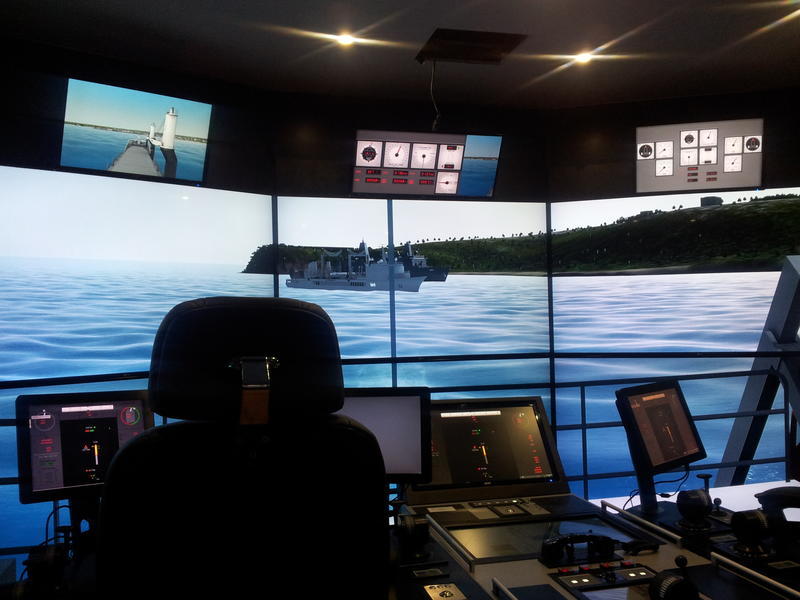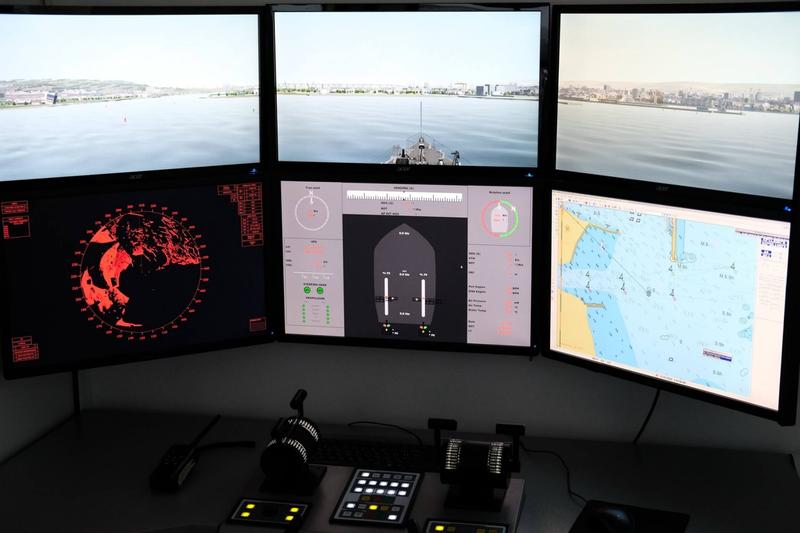A Center for Integrated Management and Monitoring of the Coastal Zone at the Varna Naval Academy Supports the MOEW
16 Jun, 2023 | 10:39
- The Centre was established with funding from the Ministry of Environment and Water under the Integrated Marine and Inland Water Management Programme of the EEA Financial Mechanism 2009-2014.
- Currently there is no evidence of pollution in Bulgarian Black Sea waters.
The Ministry of Environment and Water (MOEW) is conducting comprehensive monitoring of possible environmental damage in Bulgarian Black Sea waters as a result of the destruction of the wall of the Nova Kakhovka dam, located on the Dnieper River on the territory of Ukraine.
In situations requiring precise monitoring of the Black Sea basin, the Centre for Integrated Coastal Zone Management and Monitoring, established at the Varna Naval Academy, is also involved in the monitoring work. It conducts real-time monitoring and visualises processes in the Black Sea water area, as well as predicts the direction of movement of floating pollutants, spills, and slicks.
The centre was established with a total funding of EUR 1 147 655 from the Ministry of Environment and Water under the EEA Financial Mechanism Integrated Marine and Inland Water Management Programme 2009-2014.
The Minister of Environment and Water Julian Popov on 8 June commissioned the Black Sea Basin Directorate - Varna and the Executive Environmental Agency (EEA) to conduct enhanced monitoring of coastal marine waters, which is being carried out at three sites in coastal marine waters - Durankulak, Shabla, and Kaliakra, while the MOEW determined three additional monitoring sites located in the coastal zone.
Additional indicators are included in the current monitoring to track the potential impact of Dnieper River waters on the Black Sea. Monitoring is carried out weekly at coastal sites.
The location of the stations corresponds to the coastal accessibility, the direction of the dominant currents, and the bathymetric data available for the area. The potential risk of pollution from military activities will be monitored. The presence of petroleum products, metals, the radionuclides caesium-137 and tritium are monitored and additional indicators (pesticides, etc.) are included in response to the unfolding situation. To date, no excess quztities have been detected for any of the indicators examined.
At present, there is no evidence of pollution in Bulgarian Black Sea waters. Satellite observation and mathematical modelling of water currents have so far not provided cause for concern. Not only coastal but also inland currents are monitored. The monitoring of the state of sea waters is coordinated with the Ministry of Tourism to ensure a calm tourist season.
The frequency of sampling is sufficient to make an objective assessment of the current state of marine waters. The results will be made available to the competent authorities in due time, in accordance with the time required to analyse the selected indicators at the sites.
The MOEW exchanges information on a daily basis with the Ukrainian, Moldovan, and Romanian authorities on potential pollution of Black Sea waters.
The role of the Ministry of Environment and Water is to monitor and inform the institutions responsible for preventing and responding to the risks identified. Up-to-date information on the results of the measurements made will be shared with the competent institutions and the public in a timely manner.
- Reports on possible signs of pollution along the coastline can be sent to the Green Line of the MOEW: 0887 088440 or 02/988 8205, and to e-mail address: nccw@moew.government.bg.
Dear media representatives,
The Press Centre of the Ministry of Environment is at your disposal for further questions related to the monitoring of Bulgarian Black Sea waters.
E-mail address: press@moew.government.bg

